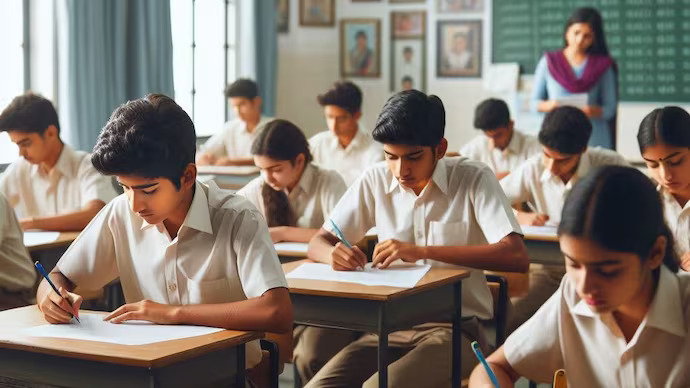Punjab becomes first state to introduce entrepreneurship in Class 11 curriculum
By | Education | 31-Aug-2025 17:41:29

News Story
Punjab has taken a groundbreaking leap in education by becoming the first
state in India to make entrepreneurship a
core subject for Class 11 students. The subject will debut in the
2025-26 academic year across all 3,840 senior secondary schools, covering more
than 2.68 lakh students.
The initiative, announced by School Education
Minister Harjot Singh Bains
alongside AAP leader Manish Sisodia,
is aimed at reshaping education from rote learning to innovation, creativity and real-world problem-solving.
“Our classrooms will transform into incubators
of ideas, and teachers will serve as startup coaches,” Bains said, stressing
that the move will prepare students to be job creators, not job seekers.
A shift from exams to experience
Unlike conventional subjects, the
entrepreneurship curriculum will be experiential
and project-driven. Students will work in teams to brainstorm business
ideas, build prototypes, pitch for seed funding and even launch their own
products or services.
Instead of exams, assessments will focus on self-evaluation, peer review and mentor feedback,
ensuring a supportive environment for risk-taking and innovation. Each year, 18
periods will be dedicated to the subject — three for theory and fifteen for
hands-on project work.
Economic ripple effect
Officials estimate the programme’s potential
impact to be far-reaching. Even if just 10% of the participating students
succeed in their ventures, it could generate ₹300–400 crore in annual student-led economic activity.
“This initiative is not only about education
but about grassroots economic growth,
community engagement and self-reliance,” Bains said.
Building on past success
The move builds on the success of the Punjab Business Blasters Programme,
launched in 2022, which expanded from 32 schools to 1,927 schools, engaging
nearly 1.8 lakh students. By embedding entrepreneurship as a formal subject,
the government aims to institutionalize
innovation in education and equip youth with resilience, leadership
and decision-making skills.
Education experts hail the initiative as a milestone in reimagining secondary education, one that could set a template for other states to follow.